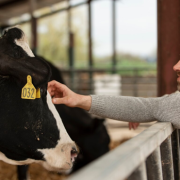
Overview
TheIndian Chartered Accountants Institute (ICAI) conductsCA course or the Chartered Accountant course in India.CA final exam and IPCC are held in May and November. CPT is held in June and December. Every chartered Accountant is a member of this institute. Any student desirous of becoming a CA must take admission in CA course by appearing in the CPT or the Common Proficiency Test). The subjects in the study of Chartered Accountant include market research, budget planning, management of working capital of an organisationetc. CA course gets completed in 5 years
Eligibility
Following students are eligible to take admission in the CA course:
- Commerce graduate students scoring an aggregate of 50% marks in 12th class.
- Graduates from Non-Commerce stream must have an aggregate of 55% marks (for those without mathematics) and 60% with mathematics.
Admission Process
Students can appear in the CPT (Common Proficiency Test) after completing their 12th standard.
Although the students can appear for the CPT only after their 12th Standard, they can, however, register or apply for the test after clearing their 10th standard.
Skills needed to compete for CA Exam.
There are certain skills which an individual must possess to clear the CA exam. These are
- Numerical Ability
- Logical & Methodical Approach
- Good understanding of the socio-economic environment in which organisations operate
- Necessary skills in applying theoretical knowledge to practical situations
- Good Verbal & written expression
- Ability to deal with different types of people
Responsibilities of Chartered Accountant
The responsibilities of a Chartered Accountant can be briefly mentioned as below:
- Dealing with Wages and Salaries
- Managing Tax
- Forecasting
- Monitoring Expenditure
- Internal Audits
- Budgeting and Budgetary Control
- Paying Accounts & Sending out Invoices
CA Exam
The CA exam consists of three main tests and a three years Articleship Training.
- CPT (Common Proficiency Test) or CA Foundation: This is the foundation course. It involves economics, accounting, quantitative aptitude, mercantile laws and accounting. Minimum 50% marks are needed to clear the CPT exam. No negative marking is done for an unattempted question. However, an incorrect answer will fetch a penalty of 0.25.
- Integrated Professional Competence Course (IPCC)or CA Intermediate: before being able to appear for the IPCC, the student must fulfil the eligibility conditions. Firstly the student must have cleared CPT and 12th standard or secured 55% marks in graduation in commerce stream or secured 60% in graduation with non-commerce subjects. Also, the student must complete 100 hours of Information technology Training to be eligible to appear for the exam. And register a minimum of 9 months before appearing for the exam.IPCC is divided into two groups in order to access the student’s knowledge in core accounting. The first group consists of 4 subjects. These are Cost Accounting and Financial management and taxation, Communication, Law Ethics, andaccounting. The second group has three main subjects. These are Auditing & Assurance and Information Technology & Strategic Management and Advanced Accounting.
- Articleship Training (3 years): Post completing the IPCC, the student needs to complete 3 years of Articleship. The added advantage of this is that students earn a stipend during this period and undergo practical training.
- FC (Final Course) or CA Final: The CA final courseis divided into two groups. First group tests the students on Professional Ethics, Strategic Financial Management, Financial Reporting, and Advanced Auditing. Second group consists of Information System Control, Advanced Management Accounting, Indirect Taxes and Direct Taxes. The student needs an aggregate of 50% marks and 40% in each subject to pass the CA Final exam. Once the student has cleared the exam, he/she will be enrolled as a member of the ICAI. Which involve membership of both FCA (Fellow member of the Institute of Chartered Accountants of India) and ACA (Associate Member of the Institute of Chartered Accountants of India).











Comments